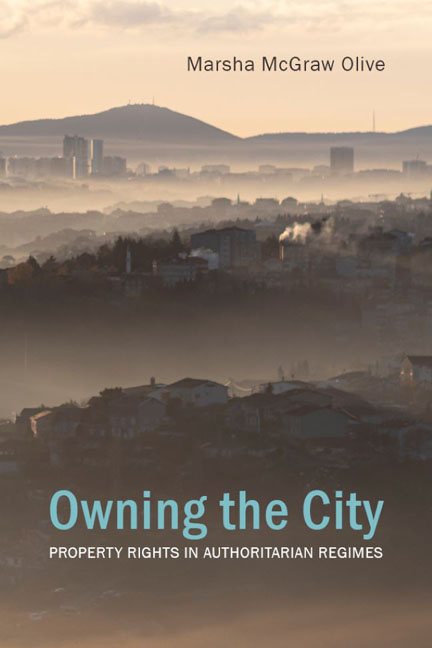Book contents
- Frontmatter
- Contents
- Acknowledgements
- List of Figures and Tables
- 1 Introduction and Argument
- 2 Globally Successful Cities
- 3 Urban Political Economy in Historical Perspective
- 4 Urban Land Governance: Liberal and Illiberal Patterns
- 5 Cautionary Tale: Moscow
- 6 Cautionary Tale: Istanbul
- 7 Conclusions and Prognosis
- Bibliography
- Index
3 - Urban Political Economy in Historical Perspective
Published online by Cambridge University Press: 20 January 2024
- Frontmatter
- Contents
- Acknowledgements
- List of Figures and Tables
- 1 Introduction and Argument
- 2 Globally Successful Cities
- 3 Urban Political Economy in Historical Perspective
- 4 Urban Land Governance: Liberal and Illiberal Patterns
- 5 Cautionary Tale: Moscow
- 6 Cautionary Tale: Istanbul
- 7 Conclusions and Prognosis
- Bibliography
- Index
Summary
[T] he Ballance of Power in a Society, accompanies the Ballance of Property in Land. The only possible Way then of preserving the Ballance of Power on the side of equal Liberty and public Virtue, is to make the Acquisition of Land easy to every Member of Society: to make a Division of the Land into Small Quantities, So that the Multitude may be possessed of landed Estates. If the Multitude is possessed of the Ballance of real Estate, the Multitude will have the Ballance of Power, and in that Case the Multitude will take Care of the Liberty, Virtue, and Interest of the Multitude in all Acts of Government.
John Adams, second president of the United States, 1776
Every man is more concerned with what belongs to him, than with what is another’s, and does not take care of that which he fears someone will take away from him. Catherine II, Empress of Russia, article 296 of the Nakaz (Instruction), 1767
The right of commoners to own urban land or contribute to city design is taken for granted in advanced democracies. Citizens of the struggling urban settlements of medieval Europe bequeathed these rights to present generations nearly a millennium ago. Yet these rights, unique as they were historical, had a more far-reaching implication. Twelfth-century townspeople laid the foundation for democratic institutions by usurping authority from traditional rulers and instituting a sworn community of the ruled. This revolutionaryassumption and legitimization of municipal power did not occur in the Near East or Asia. It was a novel characteristic of the Occidental medieval city.
This chapter traces historical differences in the urban political economy of Europe and Eurasia to shed light on the role of urban land in political and economic development. In Europe, it covers the medieval period from the eleventh century to the ascendency of imperial rule over cities from the sixteenth to nineteenth centuries. In Eurasia, it carries the story through the collapse of communism in 1991, with a focus on Russia.
Although the medieval European city did not lead directly to modern liberal democracy, it charted the course through the institution of urban property rights and responsibilities (Weber 1978 [1922]: 1323). These rights distinguished the political and economic development of Europe in the Middle Ages from cities that evolved in many of today's authoritarian and hybrid regimes, including Russia and Turkey.
- Type
- Chapter
- Information
- Owning the CityProperty Rights in Authoritarian Regimes, pp. 33 - 52Publisher: Agenda PublishingPrint publication year: 2022



